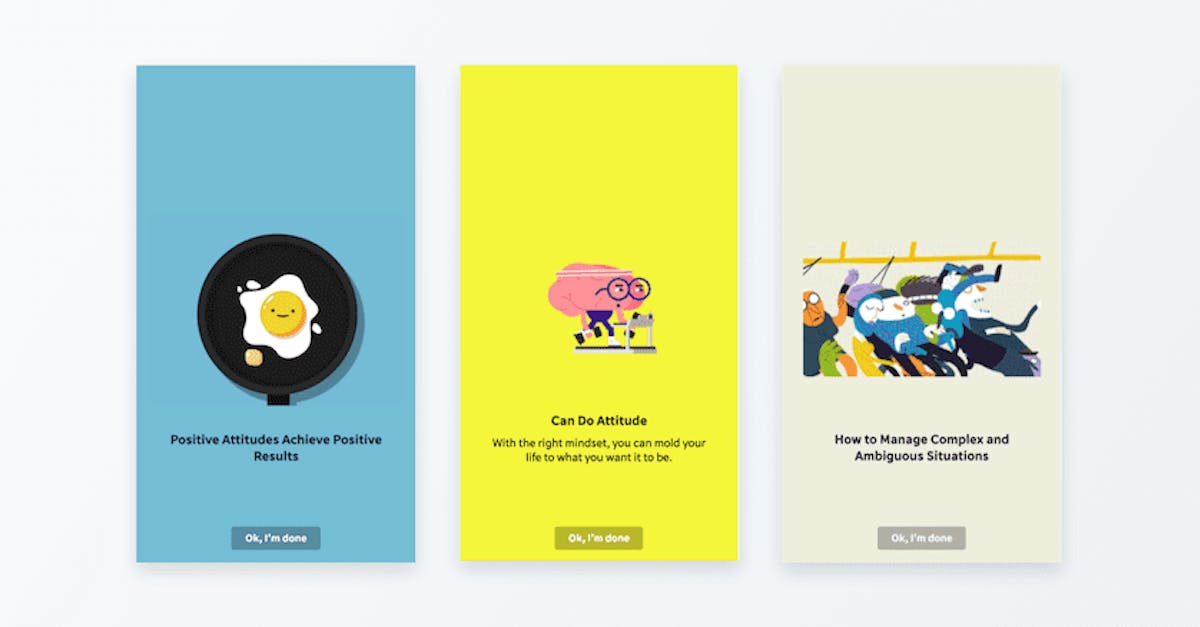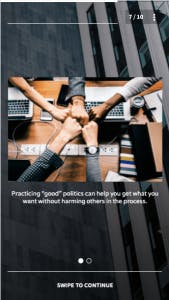Can you teach soft skills with microlearning?

Soft Skills & Microlearning
Microlearning is one of the new phenomena disrupting conventional training and learning spheres. As the name implies, microlearning is when complicated information is broken down into bite-sized chunks. These ‘chunks’ are highly targeted lessons that are easier to digest and therefore, easier to retain and remember later. It is a subset of eLearning, however, it has gained more recognition with the advent of smartphone technology. It can even be combined with gamification, spaced repetition, and mobile learning to further increase engagement and retention rates. In 2019, the global microlearning market was worth 1.5 billion USD. That number is expected to increase to 2.7 billion USD by 2024.
Microlearning focuses on the key elements of any subject area which makes both educational learning and technical company training much more effective. By focusing on fewer topics, knowledge has a greater likelihood of transferring from short-term to long-term memory where it is embedded. Although effective for technical knowledge, how effective is microlearning when it comes to teaching soft skills?
Soft skills are non-technical skills that relate to how you work. These can be people-skills, interpersonal skills, leadership skills, and other similar professional skills and competencies. They basically include how you interact with colleagues, solve problems, and manage your workload. Soft skills are incredibly important to any workplace environment, but sometimes it can be hard to learn how to do them well. Soft skills aren’t taught in the same way as hard skills are, and they can be much more difficult to learn because it often means changing your behaviour and habits. Luckily, microlearning can be used to help participants sharpen their soft skills just as well as their technical knowledge.

How does microlearning work with soft skills?
Microlearning has been proven to be effective at helping participants retain knowledge because it beats the ‘forgetting curve’. This is the notion that memory retention decreases over time, meaning that information gets lost, or ‘forgotten’ when there are no attempts to retain it. A typical “forgetting curve” hypothesizes that participants tend to forget more than 50% of their newly learned material 20 minutes immediately after the lesson ends, and keeps increasing until only a quarter can be recalled after a month’s time if no revision or repeat learning takes place.
It can be tempting to try and cram as much information into a module as possible. But in order for microlearning to be effective, it’s important to resist the temptation. The strength of the microlearning platform lies with its method: taking big-picture theories and subjects, then breaking them into bite-sized chunks for ease of comprehension. It’s best to identify one single learning objective at a time and build a microlearning module around it. By focusing on fewer topics, what you’ve learned has a greater likelihood of being retained and stored in the brain’s long-term memory. In the case of soft skills, this means focusing on one habit or behavior at a time and focusing the module around it.
How does microlearning teach soft skills?
Microlearning is effective because it is simple, specific, and to the point. It works by circumventing the brain’s tendency to overwrite memories by focusing on the key elements of any subject area. There’s no time wasted with ancillary knowledge or context that will not be immediately useful.
When thinking of switching to a microlearning approach to online learning, cut the fluff and strip the information down to the concrete facts your audience absolutely needs to know. If it isn’t useful, nix it. Platforms that support microlearning are built with specific purposes in mind and with specific outcomes as goals. If your audience is already using the platform, it’s because there is a precise thing they want to practice or learn, such as problem-solving, time management, effective communication, listening skills, or emotional-intelligence. So be effective and give it to them without any distractions or unwarranted context, which will help the information to be retained.
Microlearning has repeatedly been proven to be effective at retaining information, especially when paired with other eLearning strategies, such as spaced repetition. Although soft skills are harder to develop, the good news is that you can learn and develop soft skills as well as hard skills. It’s just a little harder to do so and requires more practice. Microlearning is effective both at teaching facts and at changing habits, and this is what makes it effective to teach soft skills.

Like hard skills, soft skills require a lot of practice to make you really skilled at using them. Unlike hard skills, there are no exams to prove that you can do them. You measure your success in developing soft skills in how well you manage relationships with those around you.
Options for developing soft skills with microlearning
There’s no shortage of soft skills that can be developed. And considering that 75 per cent of long-term job success relies on having strong soft skills like management skills and presentation skills, developing them is crucial to long-term success in professional development.
Interested in soft skills training courses? Consider taking EdApp’s ‘Be a Team Player’ course. This course will teach you how to work as part of a team. Effective teams must ensure collaboration amongst employees with various expertise and experience. That’s why being a team player is essential for seamless communication and collaboration within organizations.
And if you think your communication skills might need some fine-tuning, then consider taking the ‘Communication in Project Management’ course. Good communication is the most vital aspect for a seamless project management experience. Look no further than this course to boost your verbal communication skills when it comes to collaboration and delegation in your project team. This 5-part course introduces communication, writing techniques, collaboration and delegation skills.
Office politics can be hard to understand and yet extremely important to grasp, as they can affect multiple aspects of office life, both consciously and unconsciously. ‘Dealing with Office Politics’ can educate learners on what office politics are and how to work with them, rather than against them. This course draws together essential elements to teach learners the relationship between office politics and power/leadership. The 4-part course is guaranteed to teach you something new, prepping you with the vital skills and a positive attitude that you need for political office success.
EdApp microlesson: Dealing with Office Politics

Are you interested in learning more about microlearning and its benefits? Visit EdApp today to see how they can help. EdApp’s multi-award-winning mobile app is the new standard in eLearning and offers support for microlearning, mobile learning, spaced repetition and gamification.
Author
